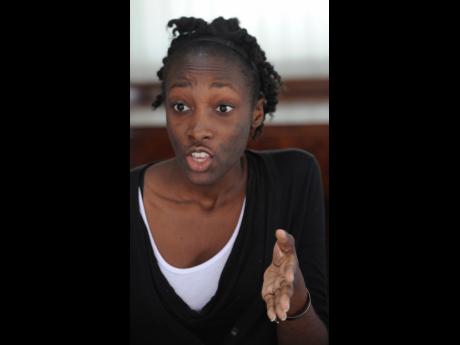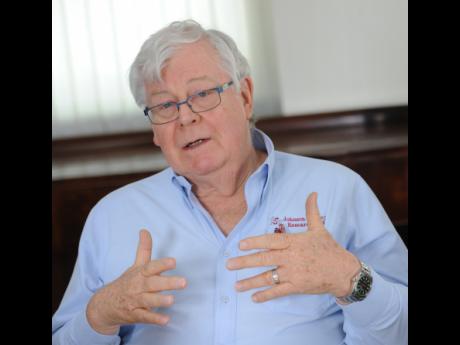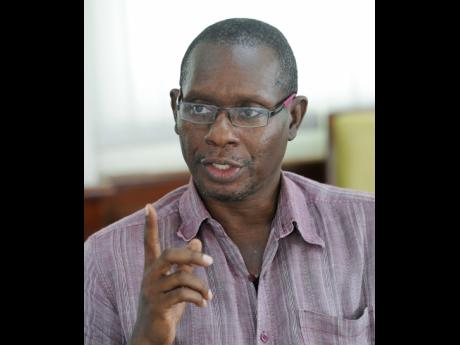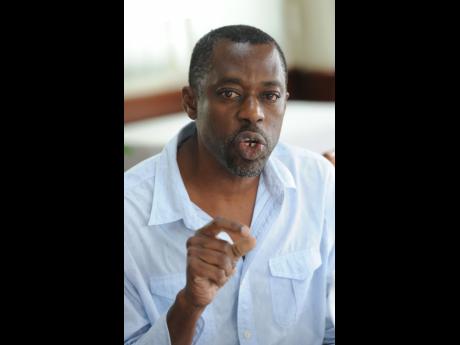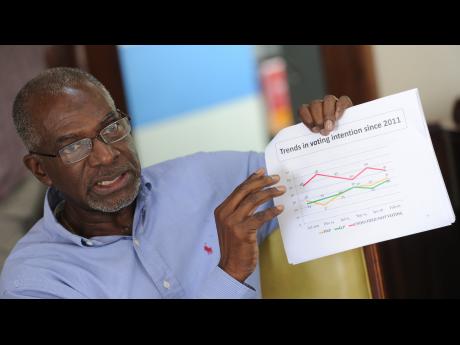PNP lost the cyber war - Analysts not sure how the 'articulate minority' impacted JLP's win
The political battle in the lead-up to the February 25 general election reached fever pitch on social media with facts mixed with rumours, innuendos, and dirty lies battling for prominence in cyberspace.
But analysts are divided on the impact of this battle on the outcome of the election, in what veteran journalist Cliff Hughes has dubbed the 64h-constituency,
For pollsters Bill Johnson and Don Anderson, not much weight should be placed on the impact of social media users on the outcome of the election.
The pollsters, who were guests at a Gleaner Editors' Forum last Wednesday, have argued that there should be caution in using comments on social media as an indication of the persons who went out to vote on election day.
"I have listed 23 different reasons why the People's National Party (PNP) lost the election. The question about social media is obviously one factor that would have impacted the PNP's chances of winning," Anderson told the forum.
"But we are in the process of organising to do a fairly detailed analysis as to the priority that you can assign to each of these 23 factors. In other words, social media did have a role to play ... but in my opinion, social media was one of the factors but it was not a critical factor," added Anderson.
He argued that many young people on social media were not registered to vote and did not have any intention of voting in the election.
'VERY MINOR ROLE'
Johnson agreed, as he pointed out that the numbers on social media do not necessarily translate to votes.
"I think it probably played a very minor role. I don't think people are persuaded one way or another by social media, though it might reinforce their existing views," said Johnson.
"It will be fascinating to see just what the turnout was among the 'millennials' but I doubt it has increased very much over the past four years," added Johnson.
But Gleasia Reid, a MPhil/PhD student in political science, who worked with political psychologist Dr Christopher Charles to conduct election forecasting before the polls, believes the 'articulate minority', as some social-media users have dubbed themselves in a play on a comment by former government minister Robert Pickersgill, were a force.
According to Reid, the Jamaica Labour Party (JLP) used the online platforms more effectively than the PNP, and this was one factor for its victory.
"The fact that the JLP utilised social media to its advantage was a critical thing because when you go on to social media, almost everybody is passing videos of the PNP and the JLP but it was a majority JLP discussion going on, especially with its tax plan," argued Reid.
VOTERS' LIST
NOT AN INDICATION
Johnson, who conducted election polls for The Gleaner, argued that the 34,907 persons added to the voters' list used for the election does not provide much insight into the voting intention of young people, given that many people registered in order to get an identification card.
The Electoral Commission of Jamaica (ECJ) had indicated that youths made up 72 per cent of the persons who had been added to the voters' list.
The ECJ published the November 30 voters' list with a total of 34,907 new names added to it. Of that number, there were 24,964 new voters between the ages of 18 and 24.
The connection between the number of young voters added to the list and social media is highlighted by the research conducted last year by the Dichter and Neira Research Network, which shows that between 40 and 46 per cent of users on social media sites Twitter and Instagram are between the ages of 18 and 24.

